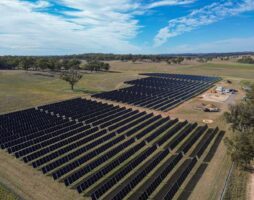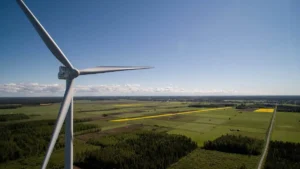Climate Change Authority chairman Bernie Fraser says the independent body’s draft report on climate change targets should serve as a wake up call to politicians about the need to take action.
“Our planet is warming up, and our everyday activities are a major contributor to that process,” Fraser a former governor of the Reserve Bank of Australia, told media after the release of the report.
“Left unchecked, this will pose a serious risk to communities everywhere. Some communities are seeing those risks turn into real problems.”
However, he said the report – which urges Australia to increase its emissions reduction target to at least 15 per cent by 2020, and up to 50 per cent by 2030 – was not a doomsday scenario.
“It’s more about a wake up call to all countries to work harder to lower greenhouse gas emissions.” China and the US had heard that call and were now acting in response, but Australia would be hard pressed to meet its fair share of reductions unless it increased its ambition now.
That seems unlikely, given the election of a new government that has vowed to repeal the carbon price, and dismantle bodies such as the CCA. The Coalition’s Direct Action policy envisages an “emissions reduction fund” and no purchases of international credits.
The CCA report doesn’t make a judgment on Direct Action, because the details are not yet known, but it says limiting the emission reductions to domestic action will make the process more expensive.
Among its major conclusion, the CCA says:
– the current 5% reduction target is clearly inadequate, and needs to be scaled up to at least 15 per cent reduction by 2020, and possibly 25 per cent. It suggests that Australia’s target for 2030 should be a 50 per cent cut.
– It underlines the importance of interim caps and targets, something that the Abbott government does not endorse. Failure to do this, the CCA says, means greater action and greater costs further down the track.
– It questions whether higher targets can be met with domestic action alone, as the Abbott government assirts. If it is, the CCA says, it will mean an “effective carbon price” of more than double the alternative in an emissions trading scheme.
– The CCA dismisses the nonsense about the impact on consumers of a high target with an effective carbon price. It says per capita gross national income would be reduced by just $200 a year below forecasts if Australia moved to a 25 per cent cut. It says the last 20 years has shows that emissions do not need to rise with economic growth.
– And it says that Australia’s task is made easier by the plunging cost of renewables, the opportunities in energy efficiency, and the generous overhang of surplus credits from Australia’s Kyoto obligations (which allowed it to increase emissions by 8 per cent).
Fraser lamented both the lack of political consensus on climate action, and on the flip-flopping of policies. This week, reports suggested that Labor may abandon its support of the current carbon price to help clear a “political avenue” to attack Direct Action.
“We are struggling in Australia from the distinct lack of broad political consensus,” Fraser said. “…. a consensus that gobal warming is real, (and) that it raises real concerns that require consistent and long term policy responses.”
He said flip-flopping on policies would not provide the investment certainty needed to reduce emissions, and this could have serious consequences for the Australian economy, which could become a “backwater” of the global economy if it did not act.
“We are looking in a big picture sense at some quite significant structural changes in the way economies and the global economy is likely to develop as it moves to a lower reliance on carbon fuels and so on,” Fraser said.
He said each would have an interest in promoting domestic technologies and efficiency programs as part of its emission reduction targets. “Otherwise, it could well end up as a bit of a backwater in this new future low carbon environment that (will) occur over the next several decades.”
“We would have a much better chance of having community support for the inevitable adjustment and the costs involved … if we had broad political consensus on the main science and the implications of that science.”
Among the immediate response to the report, Mark Wakeham, from Environment Victoria, also described it as a “wake-up call to the Australian Parliament to get serious about mechanisms to reduce greenhouse pollution.”
He said the move to abolish the Climate Change Authority would be interpreted as an attempt to “gag the credible independent umpire on emissions targets and turn pollution targets into a political football.
“The report is also a reminder to the ALP that now is not the time to be weakening its climate policy, with suggestions in the media recently that the ALP is internally debating its position on a carbon price.”
Tony Mohr, from ACF, said: “If the government accepts the science – as it insists it does – it should aim to cut pollution by at least 25 per cent.”







